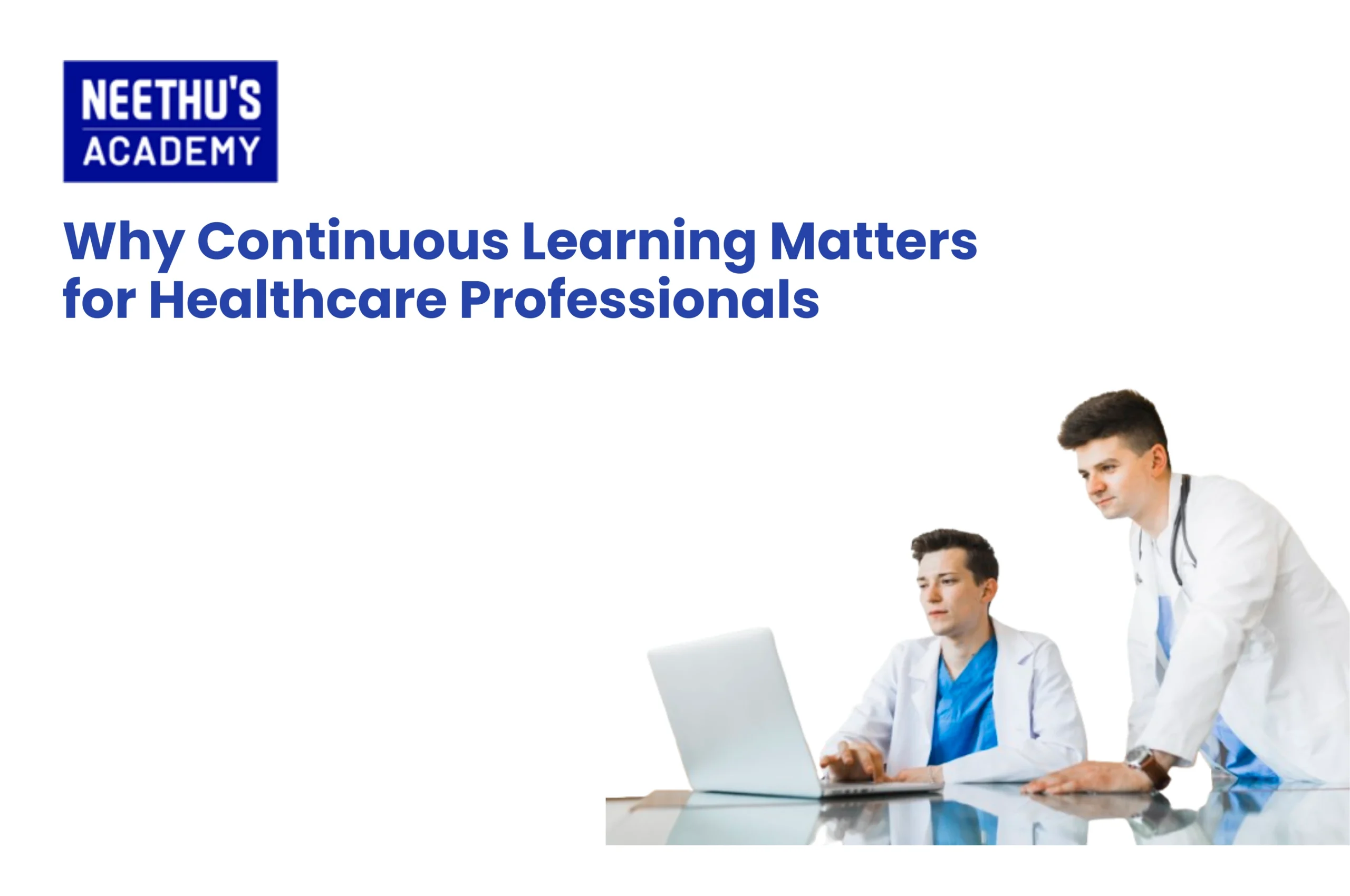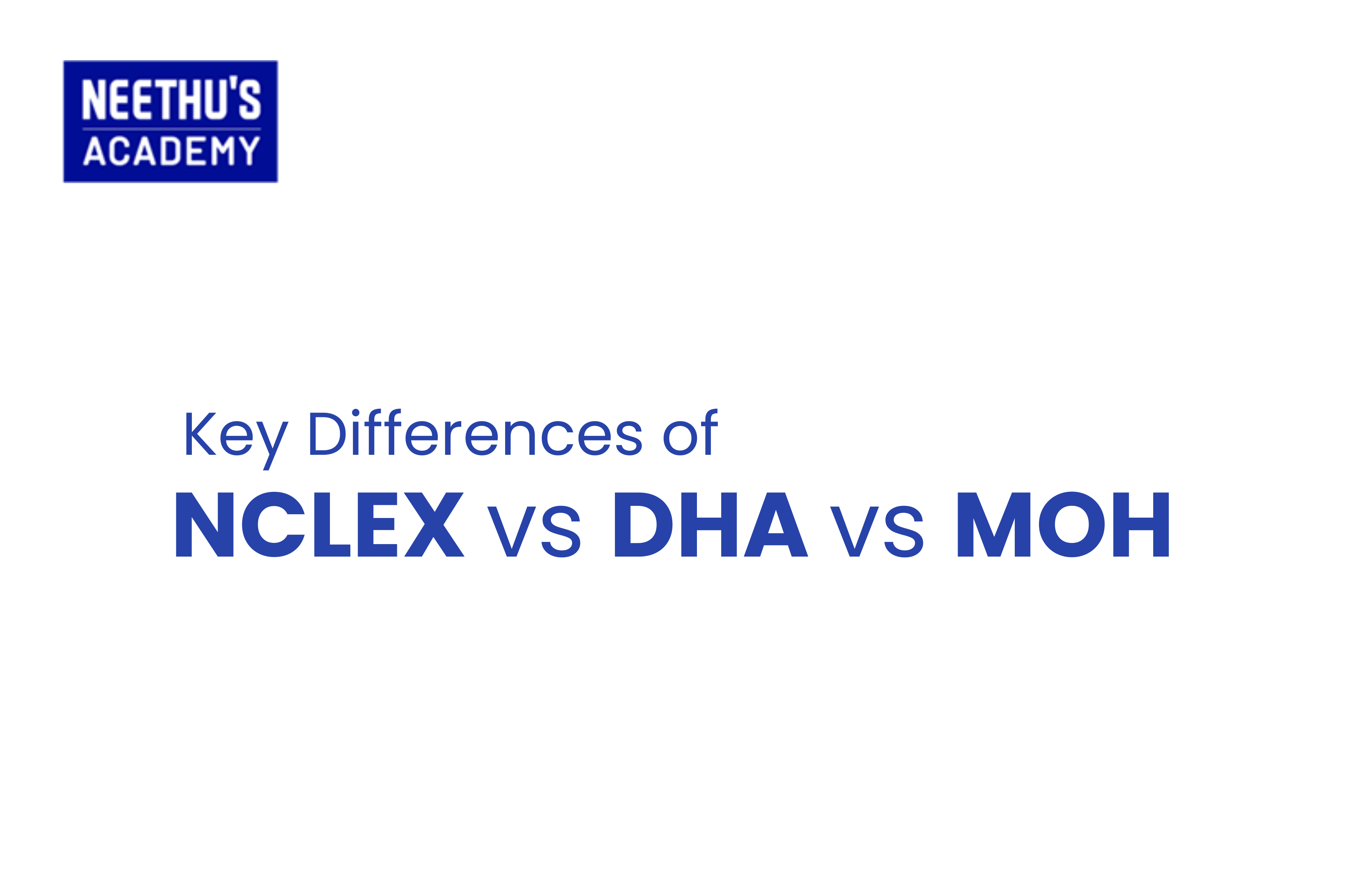It is absolutely possible to increase your score in IELTS speaking within one month if you are motivated, really well prepared, and…

Why Continuous Learning Matters for Healthcare Professionals
The world of healthcare evolves with each passing day—new diseases emerge, technologies advance, and treatment standards change almost annually. For nurses and other medical professionals, this rapid transformation means only one thing: that learning never truly stops. Continuous learning in healthcare ensures that professionals are competent, confident, and capable of delivering quality patient care. What worked yesterday may be irrelevant tomorrow, which is why lifelong learning in nursing isn’t a choice but a professional responsibility and an ethical duty.
Importance of Continuous Education in Medicine
Continuous education is the backbone of progress within modern healthcare. With the sophistication of clinical procedures and a continuous redefinition of treatment standards through evidence-based practices, healthcare professionals must keep up with recent research, guidelines, and innovations. Continuous learning in healthcare initiatives—such as through attendance at workshops, conferences, and advanced degrees—equips professionals with updated knowledge that directly impacts patient outcomes.
It also aligns with the Nursing and Midwifery Board of Ireland and other such international regulatory bodies that make this principle one of continuous professional development. Regular upskilling will ensure that their medical standards are met, clinical judgment is enhanced, and ethical decisions are made in complex healthcare environments.
Certifications and Micro-Courses to Enhance Skills
Not all learning has to involve a long-term program. Today, there are ways in which upskilling nurses can happen with efficiency through certifications and micro-courses, each targeting specific areas of need. For instance, short-term accredited programs on topics like infection control, palliative care, advanced cardiac life support (ACLS), wound management, or telehealth nursing help extend the competencies of these nurses.
Microlearning-online learning in bite-sized modules-allows learners the flexibility to fit learning into their busy schedules without disrupting work. Platforms such as Coursera, edX, and FutureLearn partner with reputed universities and health institutions to provide globally recognized certifications. Through these structured learning pathways, nurses and healthcare practitioners improve their resumes, develop specialized knowledge, and adapt quickly to emerging medical challenges.
Benefits—Career Growth, Patient Safety, Leadership
The benefits of continuous learning in healthcare go much further than academic knowledge. This is how ongoing education transforms professional and personal growth:
- Career Growth and Advancement
In addition, lifelong learners stand out in competitive healthcare environments. Professionals who upgrade their skills continuously are more likely to be promoted, engage in leadership, or transition into specialized fields. Advanced certifications and postgraduate qualifications open the door to higher-paying positions and global opportunities.
- Improved Patient Safety and Outcomes
Each training session, workshop, or online course adds up to better patient care. Fresh clinical knowledge enables prevention of errors, improvement in diagnosis, and thereby effectiveness of treatment. A well-informed nurse or doctor can quickly spot complications arising and intervene efficiently to reduce readmission rates in hospitals, enhancing recovery rates.
- Leadership and Mentorship Opportunities
Continuous learning instills confidence and leadership. Experienced nurses who regularly update their skills often become mentors, guiding new entrants on how to handle real-world challenges. Their deep knowledge and adaptability inspire teamwork, communication, and innovation within healthcare settings.
- Adaptation to Technology and Innovation
From AI-assisted diagnosis and electronic health records to robotic surgeries, technology is rewriting the paradigm of modern medicine. Lifelong learners rapidly master new tools that enhance both workflow efficiency and patient communication. Upskilled professionals not only save time but contribute significantly to data-driven, evidence-based healthcare systems.
- Improved Job Satisfaction and Motivation
The work in healthcare is demanding, but ongoing education renews motivation and confidence. Continuous learning gives a nurse a sense of purpose and pride in mastering new competencies; it reduces burnout because challenges become learning opportunities.
How to Find Affordable Online Programs
Many nurses are reluctant to further their education for a variety of reasons, including time and financial constraints; however, the digital learning environment today offers multiple affordable and flexible options. To find the right program:
Look for accredited platforms: Choose universities or online portals recognized by international boards like NMC, UK; NMBI, Ireland; or AACN, USA.
- Cost and length comparison: Micro-courses can be as low as $20, while complete certifications can cost a couple of hundred dollars.
- Explore employer-funded programs: Many hospitals reimburse their employees for professional development or have partnerships with institutions offering discounts.
- Check for global recognition: If your goal is to work abroad, ensure your course provider issues certificates accepted in multiple countries.
Leverage scholarships and grants: Many international nursing associations, the WHO, and local ministries fund continuing education initiatives.
Affordable learning no longer means sacrificing quality; instead, many online courses from top universities provide verified certificates that enhance your professional portfolio.
Role of Employers to Support Learning
Employers can also play a critical role in fostering a culture of continuous learning in healthcare. By ensuring that staff in hospitals, clinics, and healthcare organizations are current on the latest medical trends and best practices, employers benefit from this investment in their HR strategies through:
- In-house training workshops led by senior clinicians or specialists.
- Tuition reimbursement programs to help employees pursue higher learning.
- Mentorship systems to foster peer-to-peer learning and sharing of knowledge.
- Learning management systems (LMS) for tracking employee progress and training compliance.
By investing in the education of the staff, these healthcare institutions ensure consistently high-quality patient care and better retention of employees. Upskilled staff are more motivated, efficient, and aligned towards the organization’s long-term goals.
Conclusion
In this ever-evolving field of medicine, lifelong learning in nursing and health is no longer a choice but a necessity. Commitment to continuing education develops expertise and clinical skills, enhances confidence, and instills an innovative mindset. Whether through formal advanced degrees or short online courses, even workplace training enables today’s health professionals to be better carers, leaders, and change agents.
In other words, continuous learning acts as the heartbeat of modern healthcare, keeping professionals informed, inspired, and prepared for anything the future holds.
Frequently Asked Questions
Continuous learning may involve attending workshops, completing online certifications, joining medical conferences, and engaging in professional webinars.
It helps nurses remain current with the latest clinical standards, improving both patient care and career progression.
Yes, many of the accredited online courses from reputable institutions are globally recognized by various nursing councils and employers.
Ideally, nurses should update their skills every 1–2 years or when new medical guidelines or technologies appear.
Related Blogs
- All Posts
- IELTS
The reading module of the IELTS exam tests your comprehension skills on a variety of question types in a short period. Among…
Time management is the only way to succeed in the IELTS Listening module. In 30 minutes, 40 questions must be completed, and…
Course Enquiry
Error: Contact form not found.
Latest Posts
- All Posts
- canada
- CBT
- DHA
- French
- GENERAL
- German
- Haad
- IELTS
- IQN NEW ZEALAND
- MOH
- NCLEX-RN
- NHRA
- OET
- OSCE
- Pearson Vue
- PROMETRIC
- PTE
- TOEFL
- Back
- NCLEX - NGN
- Back
- OET FOR PHYSIOTHERAPIST
- OET FOR PHARMACIST
- OET FOR DOCTORS



